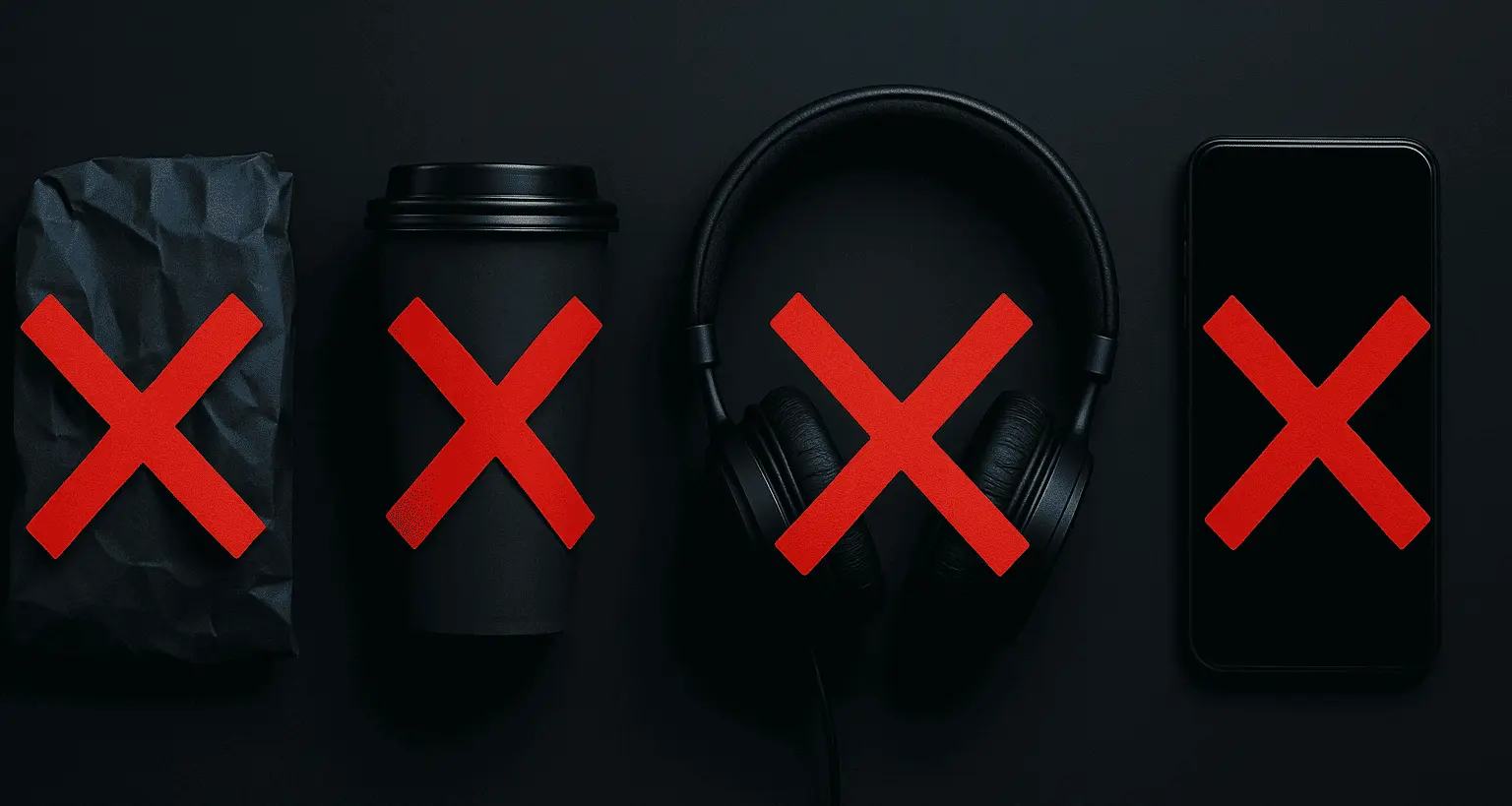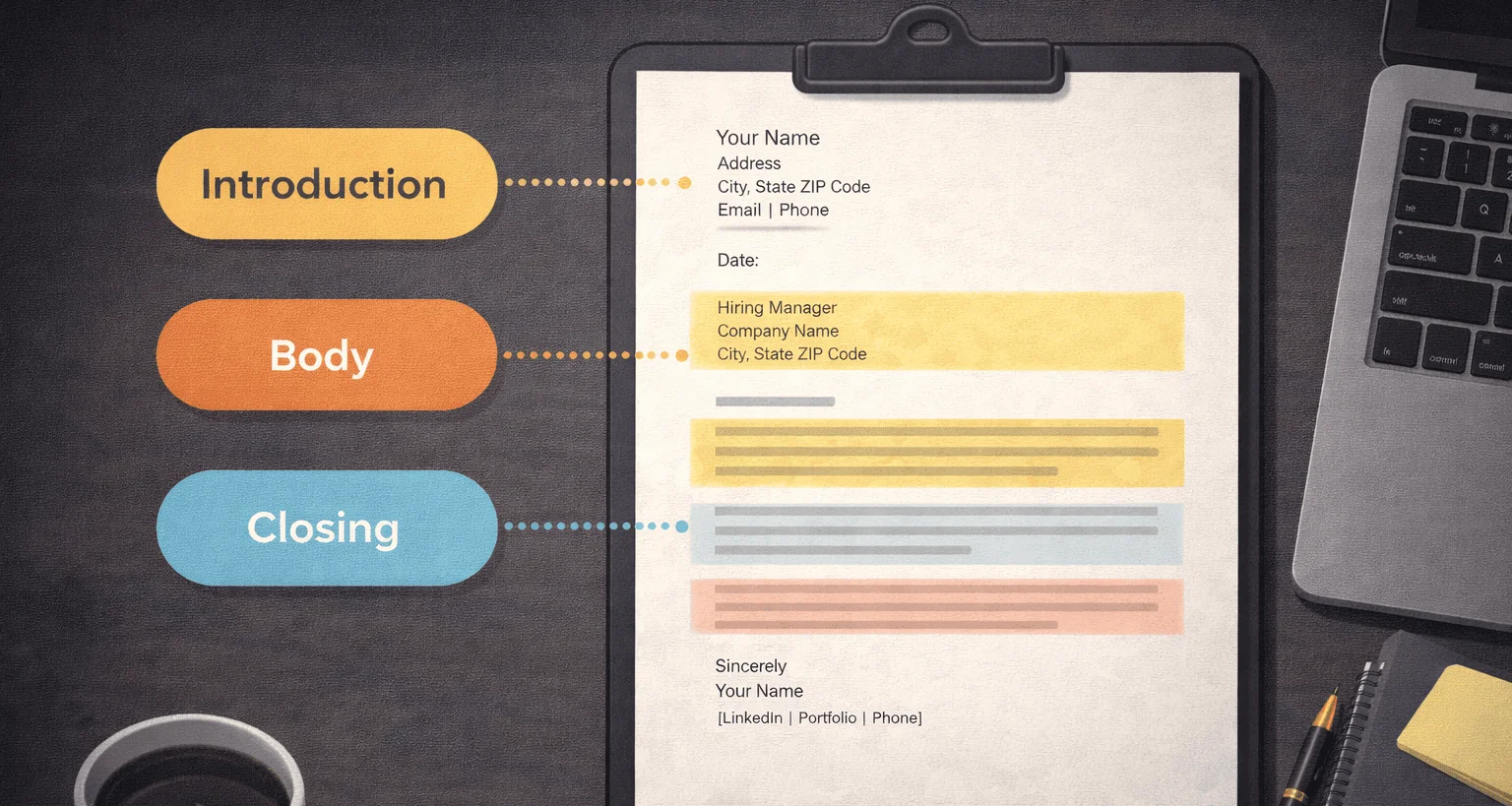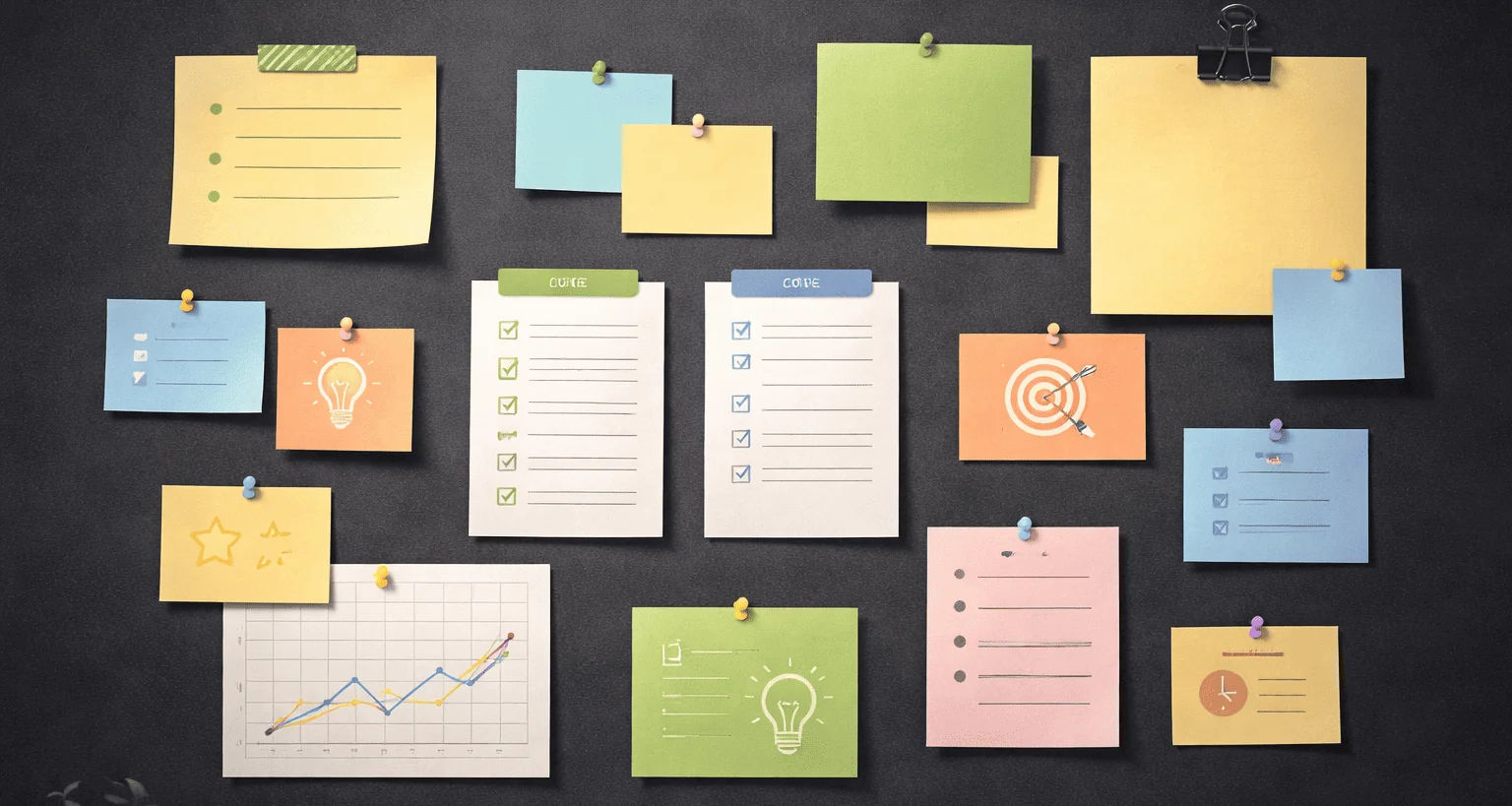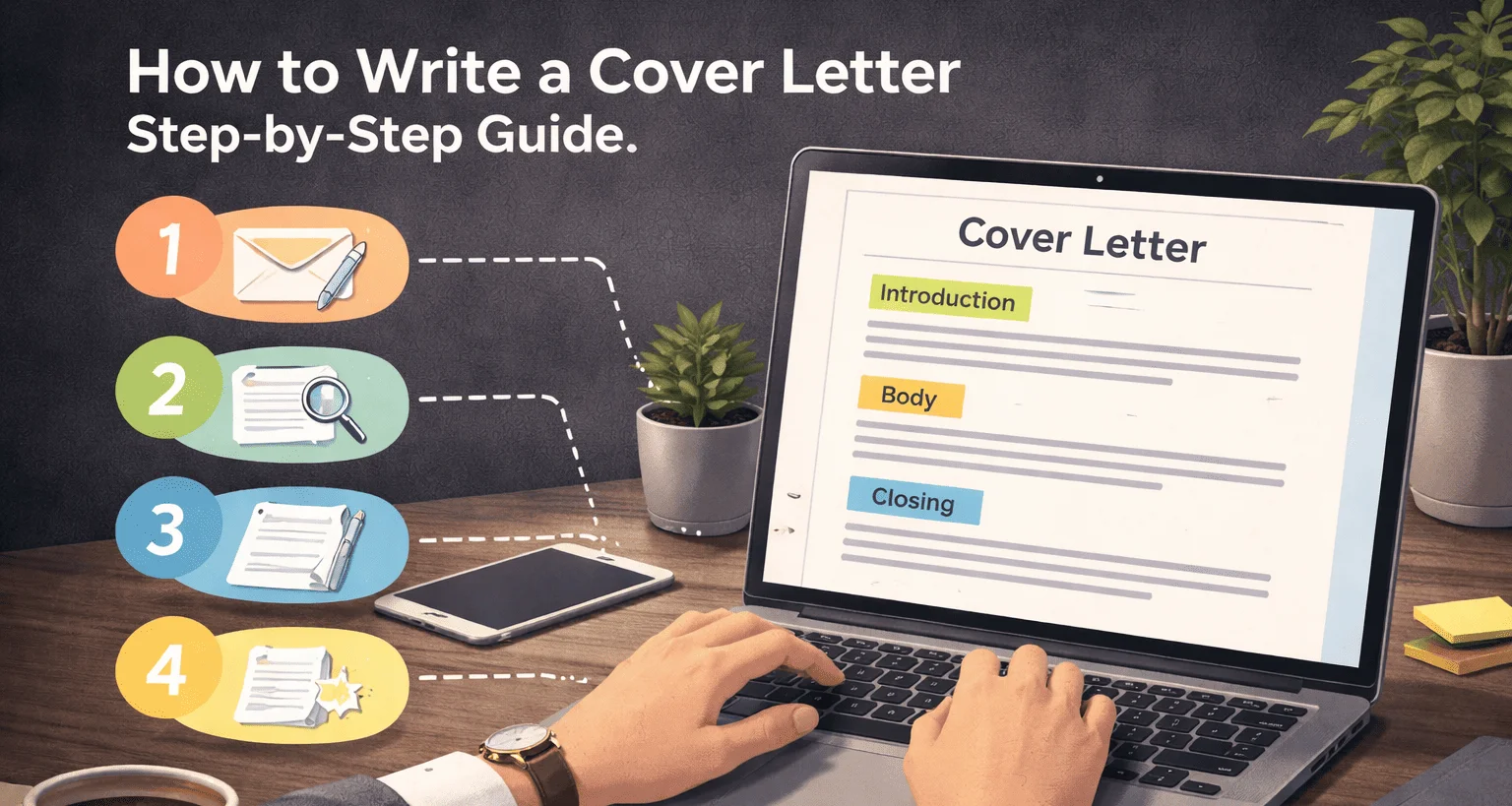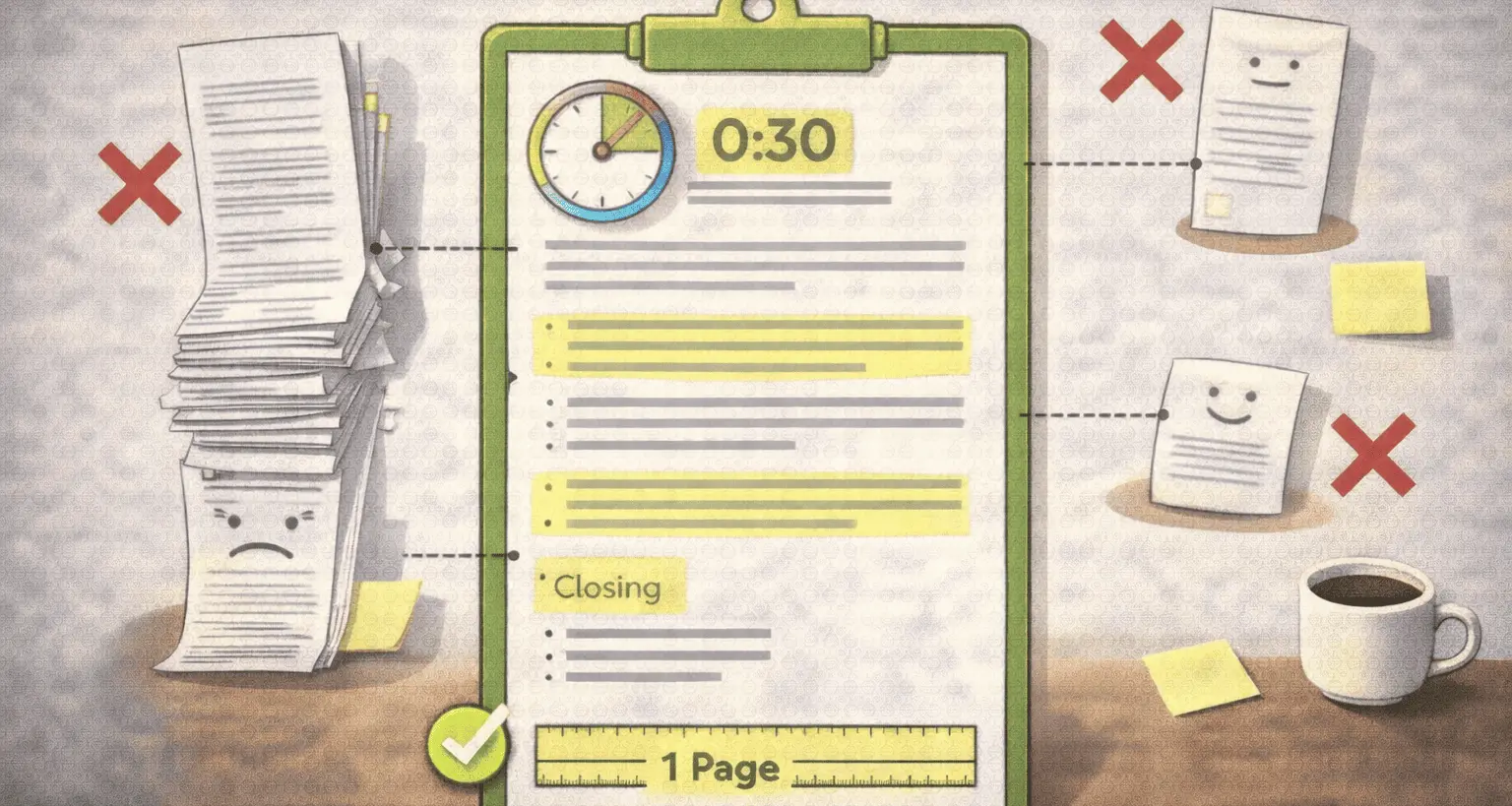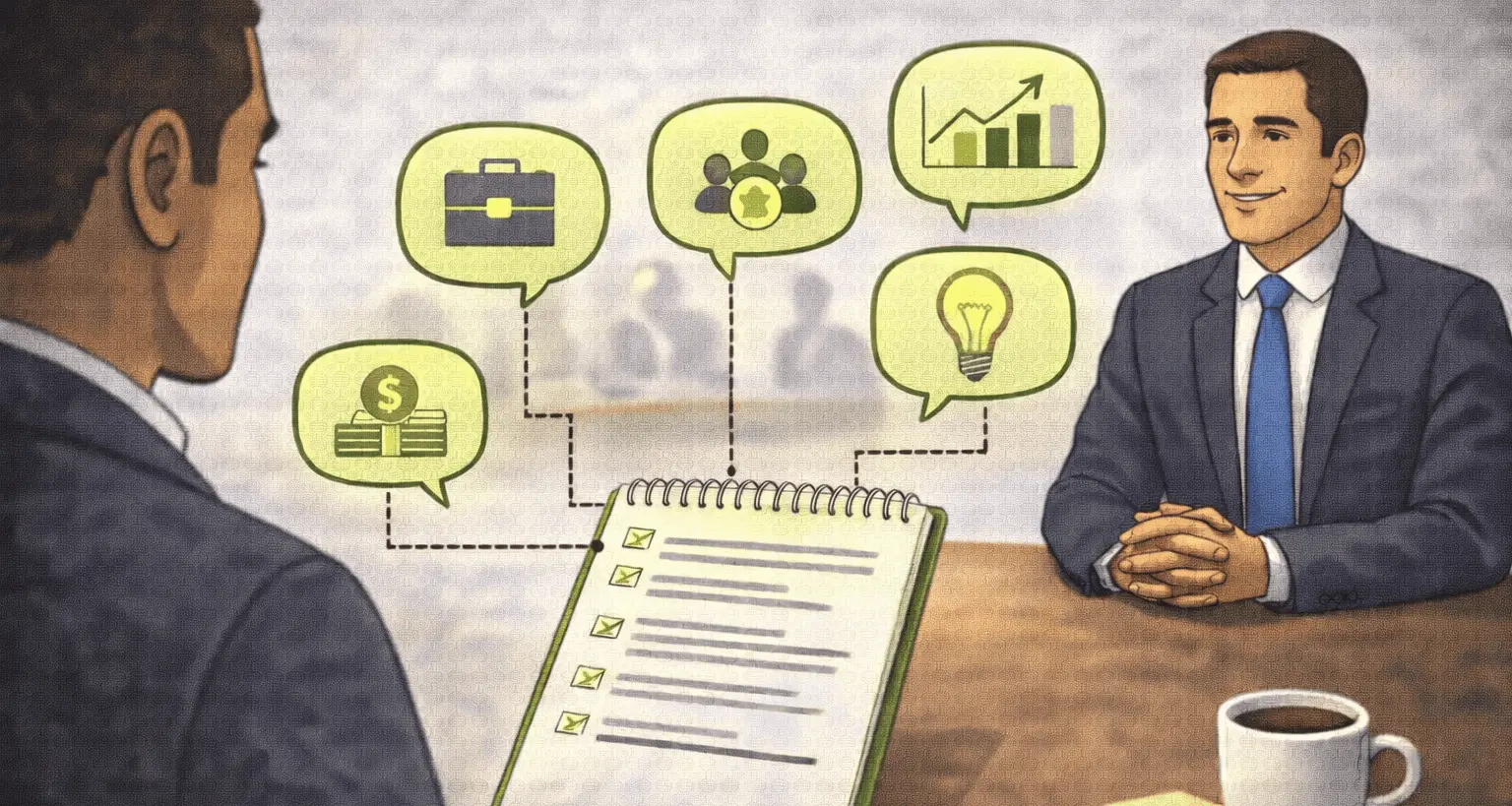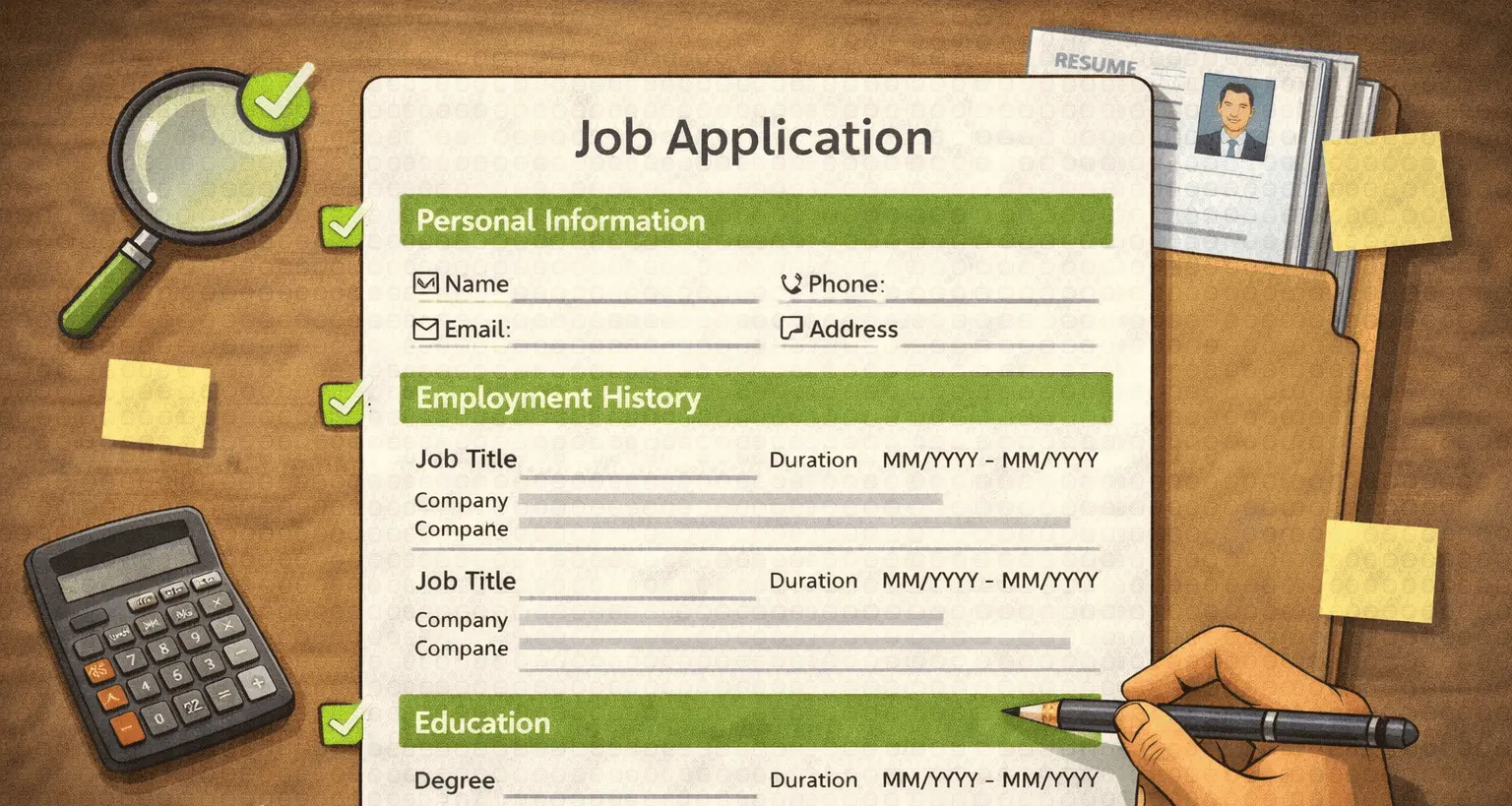While knowing what to bring to a job interview is crucial, equally important is understanding what to leave behind. Small mistakes in what you carry—or worse, what you show up with—can derail your chances before you even sit down. I've seen brilliant candidates hurt their candidacy with poor judgment about their belongings. These aren't intentional slip-ups; they're usually the result of not thinking through how each item signals professionalism (or lack thereof) to the hiring manager.
This guide covers the common items that create distractions, send the wrong message, or make you look unprepared. By understanding what to avoid, you'll eliminate unnecessary risks and ensure your interview focuses on your qualifications, not your questionable choices.
Food and Beverages
Arriving with a coffee cup or energy drink in hand is one of the quickest ways to look casual and unprofessional. Even if you're coming from a long commute and desperately need that caffeine, finish your beverage before stepping into the building. Walking in mid-sip sends a signal that you didn't prioritize the interview enough to prepare properly beforehand.
Beyond just looking unprofessional, carrying food or drinks creates practical problems. You might spill on yourself or the interviewer's carpet, creating an awkward situation that overshadows the conversation. You'll struggle to shake hands firmly or take notes while holding a beverage. And chewing food during an interview? That's an absolute no. The risk-to-reward ratio simply isn't there. Drink your coffee in your car or grab it after the interview.
Oversized Bags and Backpacks
A bulky backpack or oversized duffel bag screams "I'm unprepared and casual," which is the opposite of the image you want to project. These bags are cumbersome to manage, hard to fit under a table discreetly, and suggest you either don't have professional items to carry or you're treating this like a school field trip.
Invest in a sleek portfolio, leather briefcase, or compact professional tote instead. These items are easier to manage, look polished, and show you understand the expectations of a professional environment. Your bag should be invisible—something they barely notice because it's so appropriately professional. When your bag actually distracts from your presence, you've made a mistake.
Sunglasses and Hats
Remove sunglasses and hats the moment you enter the building. Wearing them inside is disrespectful and undermines your professional image. It creates a barrier between you and the interviewer—they can't see your eyes properly, which affects connection and trust. Eyes are crucial for communication; wearing shades blocks that essential channel.
The only exception is if you have a legitimate medical reason—like severe light sensitivity. In that case, mention it briefly when you arrive so they understand. Otherwise, these accessories should be removed before you shake hands or sit down.
Strong Fragrances
A powerful cologne or perfume can work against you in an interview setting. Not only are fragrances polarizing—some people love them, others find them overwhelming—but they can trigger allergies or sensitivities in the interviewer. You might walk in smelling great, but if they spend the interview fighting a headache from your scent, your chances just dropped.
Moreover, strong fragrances become your defining characteristic. You want to be remembered for your skills and answers, not for smelling like a department store cologne counter. If you wear fragrance, keep it subtle or skip it entirely on interview day. You can't control whether your smell will be a positive or negative factor, so don't add the risk.
Companions or Family Members
Unless you have a legitimate accessibility accommodation that requires a support person, you should arrive alone. Bringing a friend, family member, or partner signals several red flags: lack of independence, anxiety, immaturity, or lack of confidence. Employers want team members who can navigate professional environments autonomously.
Even if your support person waits in the lobby, their presence can undermine your credibility. It's also awkward for the interviewer and takes up mental energy they should be spending on evaluating you. Manage your nerves through preparation, breathing exercises, or mock interviews—not by bringing emotional support to an interview.
Personal Drama and Negativity
This one's less tangible but equally important: don't bring complaints about past employers, criticism of your previous company's culture, or personal drama into the interview room. Your energy and attitude are something you're "bringing," even if they're not physical items.
If asked about past experiences, frame them constructively. Instead of "My boss was terrible and didn't appreciate my work," say "I learned that I thrive in environments with clear communication and collaborative feedback." The difference is subtle but massive. You want your energy to be positive, forward-focused, and centered on what excites you about this opportunity, not what went wrong elsewhere.
Wrinkled or Outdated Materials
If your resume is crumpled, your business cards are dog-eared, or your reference list looks like it was printed five years ago, you've already lost credibility before they read a word. Every item you present is a reflection of your attention to detail and respect for the opportunity.
Print fresh copies of everything before your interview. Use current business cards with an updated email or phone number. Make sure your resume reflects your most recent work and accomplishments. These materials are extensions of your brand; treat them accordingly. If you're reaching into a portfolio and pulling out something that looks shabby, you're communicating that you don't care about the details.
Excessive Personal Items
Leave behind anything overly personal: photos of your family, religious items, political pins, or anything that invites questions unrelated to your professional qualifications. While these items might be meaningful to you, they distract from your professional identity during an interview.
There's a time and place to share personal details—after you've built rapport and been offered the job. During the interview, your focus should remain laser-focused on your skills, experience, and fit for the role. Personal items in your bag or on your person create opportunities for off-topic conversations or judgments that have nothing to do with your ability to do the job.
Distracting Accessories
Anything that jingles, rattles, or makes noise should stay home. Excessive jewelry, noisy phone chargers, or keychains with jangly attachments create auditory distractions. Similarly, avoid fidget toys or stress balls—these suggest nervousness and can pull your attention away from genuine engagement.
Your hands should be free to gesture naturally during conversation and to shake hands confidently. If you tend to fidget when nervous, channel that energy into deep breathing or mental preparation beforehand, not into carrying items that betray your anxiety.
Multiple Devices
Bring your phone for emergencies and navigation, but don't bring your laptop, tablet, and phone all at once unless specifically requested. Multiple devices signal you're expecting to work during the interview rather than being fully present. They're also cumbersome and make you look disorganized.
If you need to show a portfolio, ask beforehand if you should bring a laptop or if they have equipment available. Otherwise, keep tech to a minimum: a fully charged phone on silent, hidden in your pocket or bag.
Medications or Health Items
Unless absolutely necessary for a medical condition, avoid bringing visible medications, inhalers, or health devices. These items can distract from your professional presence and might invite questions about your health—which is legally off-limits for interviewers but can still create awkwardness.
If you have a genuine health need (insulin pen, inhaler), keep it discreetly in your pocket or bag and use it privately if needed. You're not obligated to disclose health conditions during interviews unless they directly impact your ability to perform job functions—and even then, you can discuss accommodations after an offer is made.
Your Mental Checklist
Before leaving for your interview, ask yourself: Does this item enhance my professional image? Will it distract from my qualifications? Could it send a negative signal? If the answer is yes to the last two questions, leave it behind. Less is more in interview settings. Your presence and preparation should be the star of the show, not your belongings.
For more on interview preparation, check out our essential items guide and preparation checklist.

